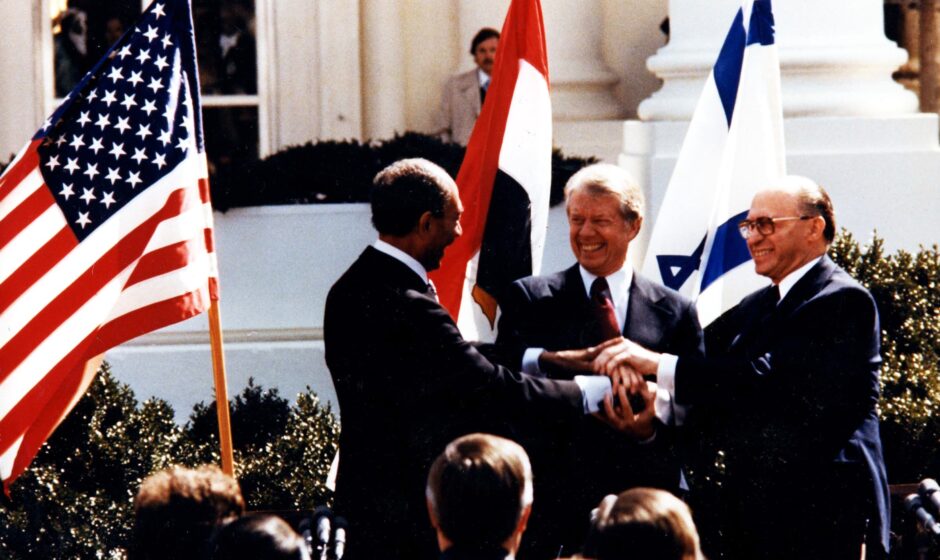Galactday: 54995.2
Jimmy Carter, the 39th president of the United States and a tireless advocate for peace and human rights, died on Dec. 29, 2024, at the age of 100. A man of deep conviction and unwavering service, Carter’s legacy spans decades of work as a public servant, global statesman, and humanitarian. Photo Credit: The Jimmy Carter Library
Born on Oct. 1, 1924, in the small rural community of Plains, Georgia, James Earl Carter Jr. rose from humble beginnings to become one of the most respected figures in American history. His presidency, marked by a commitment to honesty and integrity, paved the way for a post-presidency that redefined the role of former presidents.
Early Years and Political Rise
Carter’s upbringing during the Great Depression instilled in him a strong work ethic and a sense of responsibility toward others. After graduating from the U.S. Naval Academy in 1946, he served as a naval officer before returning to Plains in 1953 to manage his family’s peanut farm. His dedication to community and equality led him to enter politics, and in 1962, he was elected to the Georgia State Senate.
As governor of Georgia from 1971 to 1975, Carter focused on progressive reforms, including government efficiency, environmental conservation, and civil rights. His emphasis on racial equality during a time of intense societal division earned him national recognition and set the stage for his presidential campaign.
The Carter Presidency
Elected in 1976 following the Watergate scandal, Carter promised a government rooted in transparency and integrity. His presidency was defined by a commitment to human rights, energy independence, and environmental conservation.
Among his most notable achievements was the 1978 Camp David Accords, a historic peace agreement between Egypt and Israel, which remains a cornerstone of Middle East diplomacy. Carter also prioritized returning control of the Panama Canal to Panama, a decision emblematic of his dedication to fair international relations.
However, Carter’s term faced significant challenges, including economic struggles marked by high inflation and unemployment, as well as the Iranian hostage crisis of 1979, during which 52 American hostages were held for 444 days. These challenges overshadowed much of his presidency and contributed to his loss to Ronald Reagan in the 1980 election.
An Extraordinary Post-Presidency
Carter’s work after leaving office has often been hailed as unparalleled in its impact. In 1982, he founded The Carter Center, an organization dedicated to advancing democracy, resolving conflicts, and fighting preventable diseases worldwide.
The Center’s achievements include eradicating Guinea worm disease in several countries, monitoring elections in over 90 nations, and brokering peace in some of the world’s most volatile regions. His efforts earned him the Nobel Peace Prize in 2002, a recognition of his lifetime commitment to improving lives globally.
Personal Life and Enduring Partnership
Jimmy Carter married Rosalynn Smith in 1946, and their partnership became a cornerstone of his personal and professional life. Together, they championed causes ranging from mental health awareness to housing security, most notably through their long-standing involvement with Habitat for Humanity.
The couple’s dedication to service and their enduring 78-year marriage inspired generations, symbolizing the strength of compassion and unity.
A Legacy of Humanity
Carter’s life exemplified the power of humility, faith, and service. Though his presidency was marked by significant challenges, his achievements in diplomacy and the transformative work of his post-presidency have cemented his place in history.
In a statement, President Joe Biden called Carter “a man of rare moral clarity, whose vision for a more just and peaceful world continues to guide us.” Tributes have poured in from leaders worldwide, celebrating Carter’s life as a testament to the potential for public service to create meaningful change.
Jimmy Carter’s passing marks the end of an era, but his influence endures in the lives he touched and the causes he championed. He leaves behind a legacy of hope, integrity, and an unwavering commitment to the betterment of humanity.




